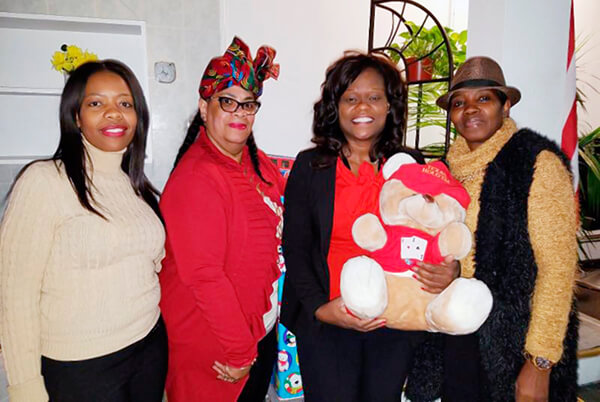Mayor Bill de Blasio on Monday signed two pieces of essential legislation into law, both sponsored by Brooklyn Council Member and Deputy Leader of the City Council Jumaane D. Williams.
The two bills are Domestic Violence Housing Discrimination Ban, or Intro 832, and Green Construction bill, or Intro 721.
Intro 832-A prohibits discrimination in housing accommodations on the basis of an individual’s status as a victim of domestic violence or stalking.
Specifically, the bill amends the Human Rights Law to make it an unlawful discriminatory practice for landlords and other agents of real estate to refuse to sell, rent or lease, or otherwise deny or withhold an interest in a housing accommodation, because of an individual’s actual or perceived status as a victim of domestic violence or as a victim of sex offenses or stalking, said Williams, who represents the 45th Council District in Brooklyn.
He said victims of intimate partner violence frequently struggle with housing discrimination, including denial of new leases, refusal to renew leases, refusal of housing vouchers, evictions and being unable to temporarily leave their home to escape domestic violence.
Nationally, 11 percent of evictions involved discrimination against domestic violence victims,” he said.
“We have a responsibility to do everything in our power to support and protect victims of domestic violence,” Williams said. “Too often, victims of domestic violence are evicted or prevented from renting apartments simply because they have been abused — this is not only wrong, it’s horrifying.
“Today, I am proud to stand with Mayor de Blasio as he signs intro 832 into law, making housing discrimination against victims of intimate partner violence and stalking illegal,” he added.
Williams said the New York City Human Rights Law is one of the most expansive human rights laws in the nation.
Now, he said, the Human Rights Law is stronger, more comprehensive and protects more New Yorkers.
“Leveling the playing field for domestic violence survivors in the highly competitive NYC housing market is critical,” said Judy Harris Kluger, Executive Director of Sanctuary for Families.
“Today’s legislation sends a strong signal that discrimination will not be tolerated,” she added. “We are grateful to Council Member Williams and Mayor deBlasio for their leadership in making housing affordable and accessible for all New Yorkers.”
Williams said Intro 721-A, updates and strengthens the green building standards for certain city capital projects.
He said the bill increases the Leadership in Energy and Environmental Design, or LEED, green building rating which certain capital projects are required to achieve.
Intro 701-A generally requires that certain city-owned buildings be designed and constructed to meet energy reduction targets, Williams said.
He said the bill applies to city-owned buildings undergoing capital projects that involve the construction of a new building or an addition to an existing building or substantial reconstruction of an existing building, where the project involves substantial work on the building envelope.
The bill also requires periodic reports on implementation.
Under current law, most city capital projects are required to achieve a LEED version 3 rating level of Certified or Silver, depending on building type, Williams said.
He said Intro 721-A will require that such city capital projects achieve the more stringent LEED version 4 rating level of Gold.
Additionally, the bill also renews and strengthens reporting requirements and expands the LEED certification requirements.
The bill affords the Mayor the ability to establish alternative green building standards when it is in the public interest, so long as the certification is at least as or more restrictive than LEED Certified, and provided that, where such alternative standards are less stringent than the normally applicable standards, the Mayor or such agency reports the reasons such alternative standards are necessary, Williams said.
He said the bill also allows an alternative compliance path for buildings used for manufacturing. Outdoor assembly spaces and Group U occupancies, such as carports, have also been exempted.


























